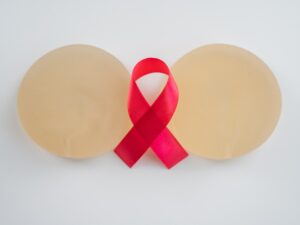 When doing breast reconstruction after cancer, can you just put in your final implant immediately? Or do you need to do a two stage reconstruction with an expander first and then a breast implant?
When doing breast reconstruction after cancer, can you just put in your final implant immediately? Or do you need to do a two stage reconstruction with an expander first and then a breast implant?
This was an article in the April 2023 issue of Plastic and Reconstructive Surgery Journal. “Revision Incidence after Immediate Direct to Implant versus Two Stage Implant based Breast Reconstruction Using National Real World Data.” This was a study in the Netherlands of almost 4000 women. They were trying to see if single stage repair had higher issues of cosmetic issues, asymmetry, higher risk of adverse events (especially if ADM acellular dermal matrix was used).
- 47% were direct to implant breast cancer reconstruction
- 53% were two stage
- Median follow up was around 30 months for both groups.
Findings?
Fewer unplanned revisions were found in the direct to implant group.
They found within 60 days of surgery, the direct to implant group had 4% return for a surgery, where it was 11.7% for the two stage group.
There were higher returns to surgery for:
- older age
- higher BMI
- smokers
- non nipple sparing mastecomy (these likely are larger/more aggressive tumors/other issue)
- if the implant is not completely covered by pectoralis major
- if ADM or mesh was used
And the cause for these returns was likely skin flap necrosis and deep wound infection.
Long term, the most common reason for return to OR was asymmetry, breast pain, capsular contracture, and dissatisfaction with breast volume. 10% of one stage people and 17% of two stage reconstruction patients needed a revision.
My thoughts?
For the direct to implant group, there is a size limitation. Expander two stage breast reconstruction is doing just that- expanding. So for those with small breasts, if you want to be bigger you need to do two stages.
There may be some bias to this study- patients who have more aggressive cancers, chemo, radiation, etc may not be offered a single stage reconstruction. In a discussion of the article, the reviewer states, “The more ideal a mastectomy flap the more the surgeon will consider placement of an implant at the time of mastectomy. Technical variabilities among oncologic surgeons remain use of cautery, epinephrine, surgical plane of dissection, adjusting the approach to patient dermal and glandular quality, and approach to the inframammary fold. ”
This is reassuring though to those who want to try to do single stage breast cancer reconstruction. I have often thought of this and wondered- is it safer to do two stages? do you get a better result?
And this study indicates a single stage is a viable and safe option. (*for those who qualify for single stage- which again, is likely dependent on 1. going smaller and 2. having a good tissue flap for the mastectomy, which you may not know until actually doing the surgery.
